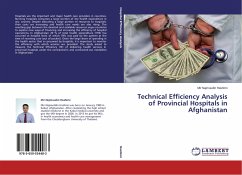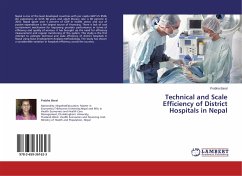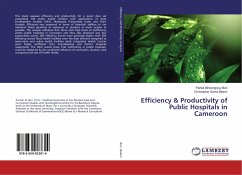Hospitals are the important and major health care providers in countries. Running hospitals consumes a large portion of the health expenditure in any country. Despite allocating a large portion of resources to hospitals, their costs are increasing and health care needs are also rising. The resulting gap between the devoted and available resources urges countries to explore new ways of financing and increasing the efficiency of hospital operations. In Afghanistan 29 % of total health expenditure (THE) has occurred at hospital level; of which 78% was paid by the patient at the time of receiving care (out of pocket). Given the large share of spending in the health sector that is consumed by hospitals, it is important to monitor the efficiency with which services are provided. The study aimed to measure the Technical Efficiency (TE) of delivering health services in provincial hospitals under the contracted-in and contracted-out modalities in Afghanistan
Bitte wählen Sie Ihr Anliegen aus.
Rechnungen
Retourenschein anfordern
Bestellstatus
Storno








